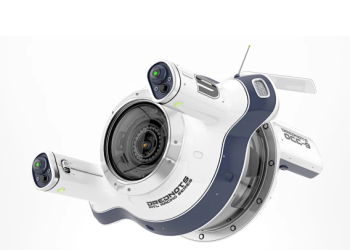H1. Introduction
In today’s digital age, social media has become an integral part of modern digital culture, shaping the way we communicate, express ourselves, and interact with the world. In this article, we’ll explore the impact of social media on modern digital culture, discussing current trends, challenges, and future outlook.
H2. Evolution of Social Media
Social media has come a long way since its inception, evolving from simple online forums and chat rooms to sophisticated platforms with billions of users worldwide. From the early days of Friendster and MySpace to the dominance of Facebook, Instagram, and Twitter, social media has transformed the way we connect and communicate.
H3. Integration of Social Media and Digital Culture
Social media has become deeply integrated into every aspect of modern digital culture, from entertainment and politics to business and education. It serves as a virtual meeting place where people can share ideas, opinions, and experiences in real-time, breaking down geographical barriers and fostering global communities.
H4. Trends in Social Media Usage
Current trends in social media usage reflect the evolving needs and preferences of users. Platforms like TikTok and Snapchat have gained popularity among younger generations, while older platforms like Facebook and Twitter continue to dominate the social media landscape. Live streaming, short-form video content, and influencer marketing are also on the rise.
H5. Influence on Communication Patterns
Social media has fundamentally changed the way we communicate, blurring the lines between personal and professional relationships. Instant messaging, video calls, and group chats have become commonplace, allowing people to stay connected with friends, family, and colleagues regardless of distance.
H6. Shaping of Digital Identities
Social media plays a significant role in shaping our digital identities, influencing how we present ourselves to the world. From curated Instagram feeds to professional LinkedIn profiles, social media allows us to craft and showcase our identities in ways that were previously impossible.
H7. Impact on Creativity and Expression
While social media has democratized creativity and expression, allowing anyone to share their artwork, music, or writing with the world, it has also given rise to a culture of instant gratification and validation. The pressure to constantly produce and share content can stifle creativity and authenticity.
H8. Challenges of Social Media in Digital Culture
Despite its many benefits, social media also presents several challenges and drawbacks that must be addressed:
H9. Privacy Concerns
Privacy concerns are a major issue in the age of social media, with many users feeling uneasy about the amount of personal information collected and shared by platforms. From targeted advertising to data breaches, maintaining privacy online has become increasingly difficult.
H10. Spread of Misinformation
Social media has been criticized for its role in the spread of misinformation and fake news, particularly during times of crisis or political upheaval. The viral nature of social media makes it easy for false information to spread rapidly, leading to confusion and distrust.
H11. Impact on Mental Health
Excessive use of social media has been linked to various mental health issues, including anxiety, depression, and low self-esteem. The constant comparison to others, fear of missing out (FOMO), and cyberbullying can take a toll on users’ mental well-being.
H12. Digital Divide
The digital divide refers to the gap between those who have access to technology and those who do not. Socioeconomic factors such as income, education, and geographic location play a significant role in determining who has access to social media and digital resources.
H13. Regulation and Governance
The growing influence of social media has raised questions about the need for regulation and governance of online platforms. Governments and policymakers are grappling with how to address issues such as hate speech, online harassment, and content moderation without infringing on free speech rights.
H14. Future Outlook
Looking ahead, the future of social media in digital culture is uncertain. While new platforms and technologies will continue to emerge, addressing the challenges of privacy, misinformation, and mental health will be crucial in shaping a more positive and inclusive digital future.
H15. Conclusion
In conclusion, social media has had a profound impact on modern digital culture, shaping the way we communicate, express ourselves, and engage with the world. While it offers many benefits, such as connecting people across the globe and fostering creativity and expression, it also presents significant challenges that must be addressed. By understanding these trends and challenges, we can work towards creating a more balanced and responsible digital culture.

FAQs After The Conclusion
1. How has social media changed the way we communicate? Social media has made communication more instantaneous and accessible, allowing people to connect with others from around the world in real-time.
2. What are some common privacy concerns associated with social media? Privacy concerns associated with social media include data collection, targeted advertising, and the potential for identity theft or cyberstalking.
3. How can social media impact mental health? Excessive use of social media has been linked to mental health issues such as anxiety, depression, and low self-esteem, particularly among young people.
4. What steps can individuals take to protect their privacy on social media? Individuals can protect their privacy on social media by carefully managing their privacy settings, being selective about the information they share, and regularly reviewing their online activity.
5. What role do governments play in regulating social media? Governments play a role in regulating social media by enacting laws and policies to address issues such as hate speech, online harassment, and content moderation.
6. How can social media be used for positive purposes? Social media can be used to connect with friends and family, share information and resources, promote social causes, and build communities around shared interests.
7. What is the digital divide, and how does it impact access to social media? The digital divide refers to the gap between those who have access to technology and those who do not. Socioeconomic factors such as income, education, and geographic location can impact access to social media and digital resources.
8. What are some potential future trends in social media? Potential future trends in social media include the rise of new platforms and technologies, increased regulation and governance, and a greater focus on privacy and user control.
















